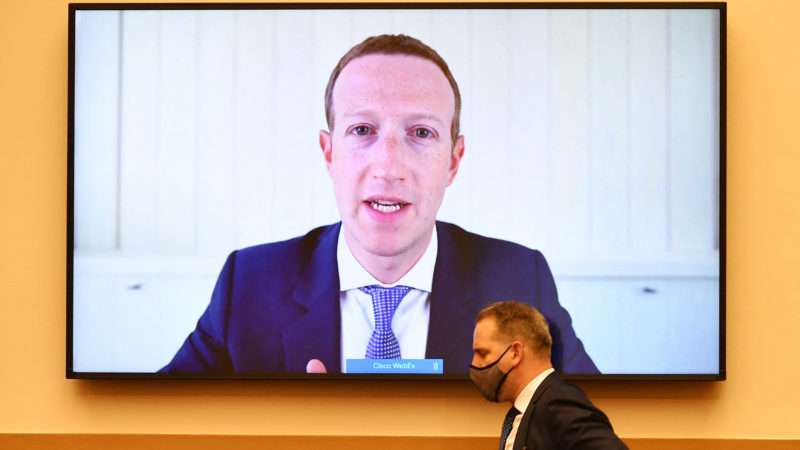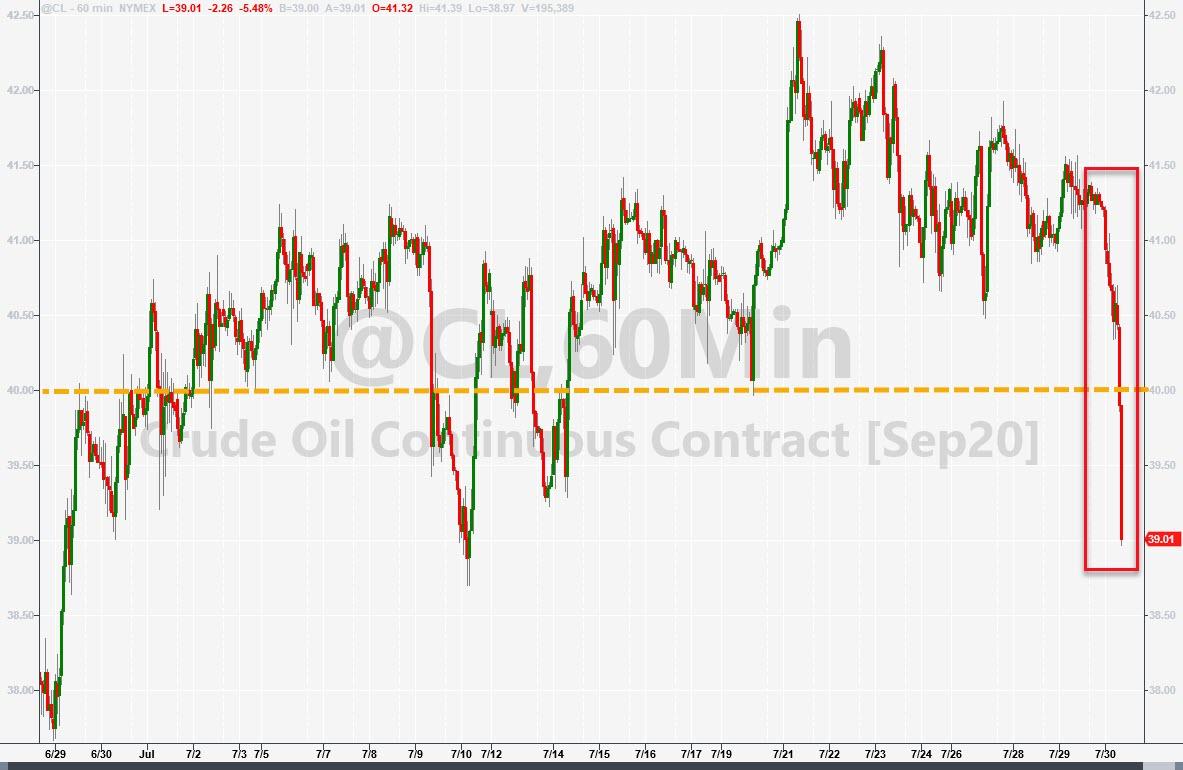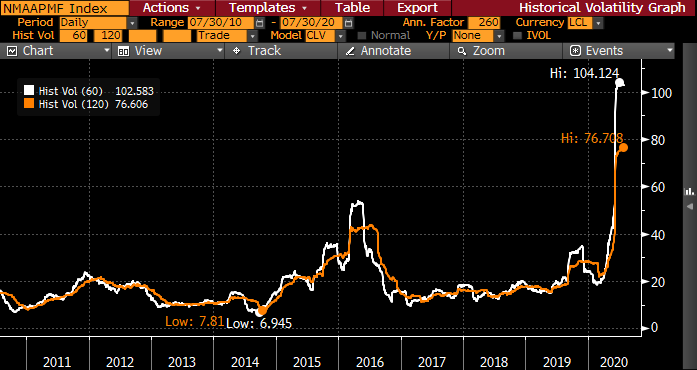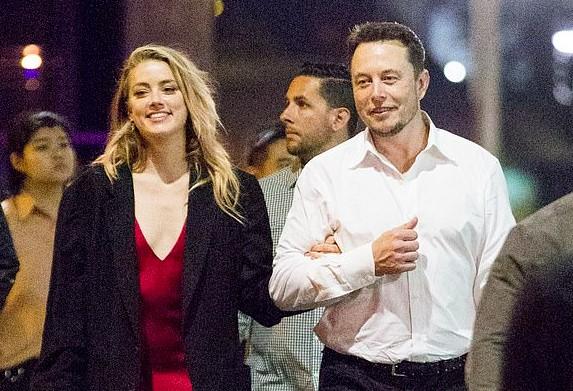Former GOP Presidential Candidate, Trump Fed Pick Herman Cain Dies After Battle With Coronavirus
Tyler Durden
Thu, 07/30/2020 – 10:35
Herman Cain, the former Godfather’s Pizza CEO and one-time Republican presidential candidate who campaigned on a sweeping tax reform plan called the 9-9-9 plan, died Thursday morning after a monthlong battle with COVID-19. He was 74.
Cain beat Stage 4 colon cancer back in 2006, and has been described by friends and family as a fighter. He was admitted to the hospital due to his COVID-19 infection on July 1. He was diagnosed with the virus two days prior, roughly a week after attending Trump’s Tulsa, Oklahoma rally.
However, it’s impossible to say for certain where Cain was infected (though several of Trump’s campaign staff from the event did contract the virus). Initially after being admitted to the hospital, Cain’s spokesman said he didn’t need a ventilator, and was in “good spirits”.
Cain grew up in Georgia, where he lived at the time of his death. He was the head of “Black Voices for Trump” and had recently signed on to host a new show on Newsmax called “Herman Cain’s America”.
Cain’s name returned to the front page last year when President Trump was considering him for an open seat on the Fed board of governors. However, Cain’s path to the nomination was sabotaged by complains about the sexual indiscretions that helped undermine his 2012 GOP primary campaign (for the nomination eventually won by now Sen. Mitt Romney). However, he once served as director of the Federal Reserve Bank of Kansas.
Dan Calabrese, a longtime writer, and editor of Cain’s website, published a touching obituary written by a longtime friend and staffer. Read it below in full:
* * *
You’re never ready for the kind of news we are grappling with this morning. But we have no choice but to seek and find God’s strength and comfort to deal with it.
Herman Cain – our boss, our friend, like a father to so many of us – has passed away. He’s entering the presence of the Savior he’s served as an associate minister at Antioch Baptist Church in Atlanta for, and preparing for his reward.
Romans 2:6-7 says: “God ‘will repay each person according to what they have done.’ To those who by persistence in doing good seek glory, honor and immortality, he will give eternal life.” By that measure, we expect the boss is in for some kind of welcome, because all of us who knew him are well aware of how much good he did.
Let me deal with some of the particulars of the last few weeks. We knew when he was first hospitalized with COVID-19 that this was going to be a rough fight. He had trouble breathing and was taken to the hospital by ambulance. We all prayed that the initial meds they gave him would get his breathing back to normal, but it became clear pretty quickly that he was in for a battle.
We didn’t release detailed updates on his condition to the public or to the media because neither his family nor we thought there was any reason for that. There were hopeful indicators, including a mere five days ago when doctors told us they thought he would eventually recover, although it wouldn’t be quick. We were relieved to be told that, and passed on the news via Herman’s social media. And yet we also felt real concern about the fact that he never quite seemed to get to the point where the doctors could advance him to the recovery phase.
Herman was 74. Although he was basically pretty healthy in recent years, he was still in a high-risk group because of his history with cancer. We all prayed so hard every day. We knew the time would come when the Lord would call him home, but we really liked having him here with us, and we held out hope he’d have a full recovery.
Herman had just started hosting a new show on Newsmax TV. He was so excited about it, and so pumped up about playing a role in the 2020 election campaign. At an age when a lot of people are looking to slow down, he was taking on new projects, booking speaking opportunities. Ever the dealmaker, he would fill me in with details of his negotiations with people on any number of things. I would always tell him I should have him negotiate my deals with my business’s other clients, because he did them better than anyone.
The last time I talked to him was when he was getting ready to start the Newsmax show. He was really pumped about it, and I was happy for him because he’d walked away from a nice contributor gig at Fox a couple years early to head a Super PAC. When that ran its course, Herman really wanted to get back into TV, and this afforded him a beautiful opportunity. Alas, he only ever got to host one episode.
But there was so much more to him than the public saw, and certainly more than the media presented to you. Most people heard of Herman for the first time when he ran for president in 2011. What they didn’t know was his business background. They didn’t know how he had started his career as a civilian employee of the Navy. It was funny to us because sometimes political pundits portrayed him as kind of a goof – having no idea that during his time working for the Navy, he was literally a rocket scientist.
Many people don’t know about his years climbing the corporate ladder at Pillsbury, at Burger King and finally as CEO of Godfather’s Pizza. I will always remember the first time I became aware of him. It was 12 years before I worked with him for the first time. It was the now-famous encounter between Herman and Bill Clinton in which the boss schooled the president on the finer points of small-business finance, and I can’t describe it any better than I can just let you watch it:
Herman could handle himself in a situation like that because he knew who he was, and he wasn’t intimidated by anyone, including the president of the United States.
When I launched the North Star Writers Group syndicate in 2005, I was looking for good writers and thinkers who were not signed to syndicates, and I was surprised to learn that Herman Cain – the guy who had schooled Bill Clinton on national TV – was a free agent. I tracked down contact information for him and told his office I would like to syndicate him. Two days later I had a signed contract, and it kicked off a 15-year professional relationship and friendship that I will treasure for the rest of my life.
It was only a few months later that he informed me of his cancer diagnosis, but he assured me he would continue writing his column every week. Even though I told him that was the last thing he needed to concern himself with, he did it. He never told me he would do something that he didn’t come through on.
In 2007, my business was struggling and I was having a hard time finding a direction for it. Herman welcomed me to come see him in Atlanta, and he spent an entire day with me going over the particulars of my business. Together we drew up an action plan, and he gave me some firm and pointed advice on some things I needed to do. This guy had helped lead some of the biggest companies in the world, and he could have charged massive consulting fees for this sort of thing. But he did it all for free, and he kept working with me over the years to make sure things stayed on the right track.
I haven’t even gotten into his experiences as what he called an ABC – an American Black Conservative – because his politics seems so low on the list of things I want to tell you about him right now. He was one of the most important figures to ever come into my life, and I can’t wrap my head, or my heart, around the fact that he’s gone. I don’t think I’ll be able to for a long time.
But I want you to understand just what our world has lost today. There aren’t many people like Herman Cain, and it behooves us to truly cherish the ones we’re given. His wife Gloria – his children Melanie and Vincent – and his grandchildren…they need our love, our support and our prayers. Nothing I talked about above meant as much to him as these wonderful people did, and because he loved them so much, we will continue to feel his impact on the world through them.
I’m sorry I had to bring you bad news this morning. But the good news is that we had a man so good, so solid, so full of love and faith . . . that his death hits us this hard. Thank God for a man like that.
Rest well in His presence, Boss. We love you.
* * *
Source: HermanCain.com
via ZeroHedge News https://ift.tt/3jOn1Ea Tyler Durden





